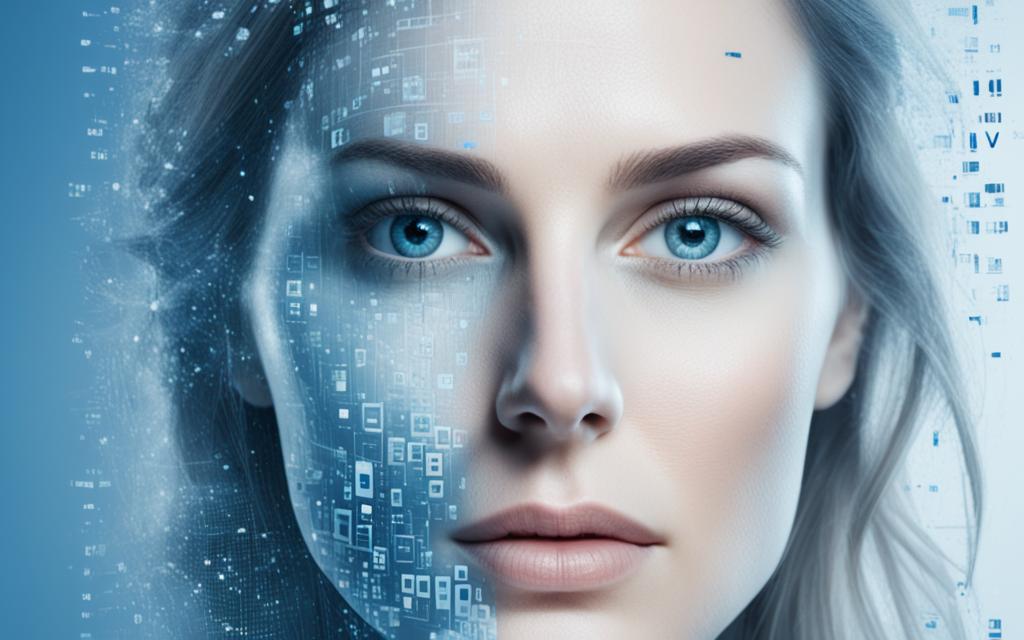Table of Contents
A viral video featuring a fake AI-generated deepfake of Bobbi Althoff has sparked widespread concern and outrage. The video falsely depicts Althoff in compromising situations, raising serious questions about privacy, consent, and the ethical use of deepfake technology. The incident highlights the growing issue of AI-generated content that can harm reputations and violate personal privacy. Similar incidents have also targeted other public figures, emphasizing the need for respect and privacy in the digital age.
The fake Bobbi Althoff AI deepfake video has ignited a conversation about the future of privacy in the digital age. It raises concerns about the impact of AI-generated content on individuals’ lives and the ethical implications of its use. This incident serves as a wake-up call for both creators and consumers to consider the potential harm caused by AI technology and the need for responsible and respectful online behavior. The incident also prompts questions about how to prevent such abuses of technology and protect individuals from AI-generated content that crosses ethical boundaries.
The fake Bobbi Althoff AI deepfake video has generated a significant public outcry, with people expressing outrage and concern over the misuse of technology. Many have called for stronger privacy safeguards and regulation of AI technology to prevent further incidents like this. The incident has also prompted discussions about the need for legal action and consequences for those responsible. As the public demands action, it highlights the urgent need for measures to protect individuals from the negative effects of AI-generated content and ensure the responsible and ethical use of technology.
The Impact on Individuals’ Lives and the Future of Privacy
The fake Bobbi Althoff AI deepfake video has sparked a crucial discussion surrounding the future of privacy in our increasingly digital society. This incident has raised concerns about the profound impact of AI-generated content on personal privacy and has shed light on the ethical implications of its use. It serves as a wake-up call for both content creators and consumers to recognize the potential harm that AI technology can inflict and the urgent need for responsible and respectful online behavior.
The incident with the fake Bobbi Althoff AI deepfake video not only prompts a reevaluation of privacy standards but also raises important questions about industry accountability and safeguarding personal privacy in the digital age. It challenges us to reflect on how we can prevent similar abuses of AI technology in the future and protect individuals from falling victim to AI-generated content that transgresses ethical boundaries.
As we navigate the future landscape of privacy rights, it is vital that we address the ethical implications of AI-generated content head-on. While AI technology holds incredible potential and promise, its misuse can have detrimental consequences for individuals. It is imperative that society develops robust measures and regulations to protect against the violation of personal privacy through deceptive AI-generated content.
“The increasing prevalence of AI-generated content highlights the urgent need to balance technological advancements with the preservation of personal privacy,” remarks Dr. Emily Scott, a leading expert in digital ethics. “We must foster a digital society where individuals’ rights to privacy are upheld, and responsible AI practices are enforced.”
“This incident serves as a stark reminder that personal privacy is vulnerable in the age of AI-generated content. It’s high time we collectively address the ethical implications and ensure that individuals’ digital lives are protected,” emphasizes Daniel Adams, a privacy advocate.
The Ethical Dilemma: Balancing Innovation and Privacy
The emergence of AI-generated content poses an ethical dilemma that demands careful consideration. On one hand, it opens up new possibilities for creative expression and innovative storytelling. However, on the other hand, it raises significant concerns about the erosion of personal privacy and the potential for misinformation and manipulation.
The future of privacy relies on finding a delicate balance between embracing technological advancements and protecting individuals’ rights. Without regulatory measures, ethical guidelines, and public awareness, AI-generated content could become a weapon that infringes on personal privacy and exploits vulnerable individuals.
| Ethical Implications of AI-generated content | Protection of Personal Privacy |
|---|---|
| Fostering consent and respect in content creation | Implementing robust privacy laws to safeguard individuals |
| Combating misinformation and deepfake disinformation | Ensuring transparency in AI-generated content creation |
| Safeguarding against privacy breaches | Establishing strong data protection regulations |
It is essential that stakeholders from various fields come together to address the ethical implications of AI-generated content and develop comprehensive frameworks that prioritize personal privacy. By doing so, we can foster an environment of responsible AI use and build a future where personal privacy is upheld, even in the face of rapid technological advancements.
Public Outcry and Calls for Action
The fake Bobbi Althoff AI deepfake video has sparked a significant public outcry, leaving people outraged and deeply concerned about the misuse of technology. This incident has triggered a strong wave of public sentiment, with individuals expressing their anger and demanding immediate action to address the issue.
Many are calling for the implementation of stronger privacy safeguards and regulations surrounding AI technology. The public recognizes the need to prevent further incidents like this and protect individuals from the harmful effects of AI-generated content. The urgency in their voices pushes for the development and implementation of comprehensive measures that ensure responsible and ethical use of technology.
Furthermore, the widespread discussions prompted by this incident have highlighted the necessity for legal action and consequences for those responsible. People are demanding accountability and justice for the violation of privacy and the potential damage caused to individuals’ reputations. The call for legal frameworks aligned with AI regulation is growing louder, reflecting the public’s demand for a safer and more secure digital environment.
All in all, the public outcry following the fake Bobbi Althoff AI deepfake video serves as a wake-up call to the potential dangers posed by AI-generated content and the need for privacy safeguards and AI regulation. It demonstrates the urgent need for action to protect individuals from the malicious use of technology, ensuring that AI is used responsibly and ethically in our rapidly advancing digital society.
FAQ
What is the Bobbi Althoff AI deepfake video?
The Bobbi Althoff AI deepfake video is a viral video featuring a fake AI-generated deepfake of Bobbi Althoff.
What does the video falsely depict?
The video falsely depicts Bobbi Althoff in compromising situations.
What are the concerns raised by the video?
The video raises serious questions about privacy, consent, and the ethical use of deepfake technology.
Why is the incident significant?
The incident highlights the growing issue of AI-generated content that can harm reputations and violate personal privacy.
Have other public figures been targeted in similar incidents?
Yes, similar incidents have also targeted other public figures.
What does the incident emphasize?
The incident emphasizes the need for respect and privacy in the digital age.
What does the video ignite a conversation about?
The video ignites a conversation about the future of privacy in the digital age.
What concerns does the video raise?
The video raises concerns about the impact of AI-generated content on individuals’ lives and the ethical implications of its use.
What should creators and consumers consider?
Creators and consumers should consider the potential harm caused by AI technology and the need for responsible and respectful online behavior.
What questions does the incident prompt?
The incident prompts questions about how to prevent abuses of technology and protect individuals from unethical AI-generated content.
How has the video been received by the public?
The video has generated a significant public outcry, with people expressing outrage and concern over the misuse of technology.
What are people calling for in response to the incident?
Many people are calling for stronger privacy safeguards and regulation of AI technology.
What has the incident prompted discussions about?
The incident has prompted discussions about the need for legal action and consequences for those responsible.
What does the public demand?
The public demands action to protect individuals from the negative effects of AI-generated content and ensure the responsible and ethical use of technology.








